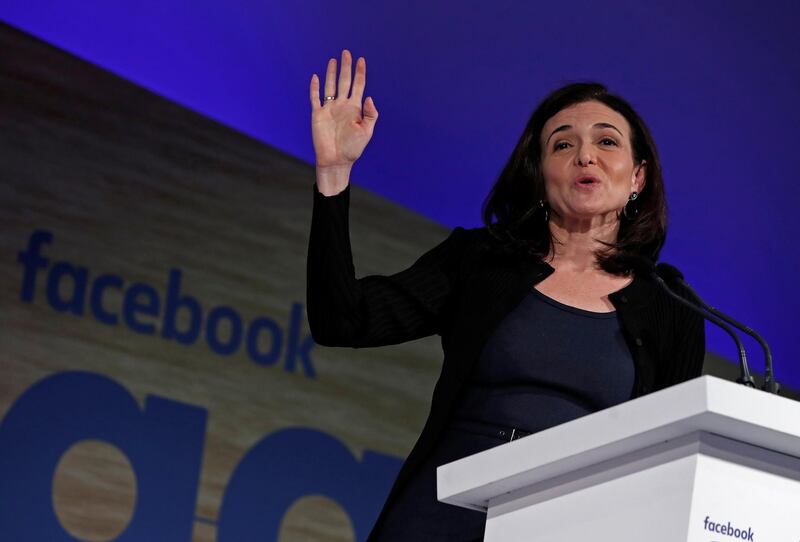Facebook promises “to do better” to boost privacy, stem the spread of hate speech and clamp down on the abuse of the social network to influence votes, Chief Operating Officer Sheryl Sandberg told an audience in Brussels.
"We know that tech companies need to do better and that we at Facebook need to do better. We have a lot to improve," she said. "We have not done enough to stop abuse of our technology."
Facebook and other internet platforms are facing a wave of legislation across Europe that may force them to do more to stop terrorist content appearing and spreading online.
New privacy rules come into force across the EU in May that could levy heavy fines on companies that don’t comply. Regulators are also looking at how some online platforms may have been misused to unfairly swing votes, such as the British poll to leave the EU.
Facebook wants "to help people take control of their data" and will put users’ privacy settings in one place to make it easier to manage, Ms Sandberg said.
The company will also try to explain to users how advertising works. The company is investing in artificial intelligence and in hiring up to 20,000 people by the end of the year to identify and remove harmful content, including hate speech and material that promotes terrorism, she said, adding that the company can try to offer an antidote by challenging extremist narratives.
"We remove a lot of content but we can always do better in enforcing policies," Ms Sandberg said. "We look to Europe for continued leadership in this area, including the hate speech code of conduct."
Facebook is "never going to be able to stop" fake news entirely but will go after fake accounts and disrupt an ad model that rewards clicks on eye-catching content, she said.
___________________
Read more:
[ Will Facebook's crowdsourced news rating move backfire? ]
[ Facebook will open digital hubs to train one million Europeans ]
___________________
Her comments came after media mogul Rupert Murdoch said Facebook should pay fees to "trusted" news producers for their content.
Facebook said last week that it would boost news sources users rank as most trustworthy, while shrinking the percentage of news posts overall in users' news feeds.
Mr Murdoch, whose companies own the Wall Street Journal, Fox News, the New York Post and other media properties, said publishers are "enhancing the value and integrity of Facebook through their news and content but are not being adequately rewarded for those services".
Germany has now begun enforcing Europe’s toughest law aimed at reining in hate speech and fake news on social media, threatening to fine the likes of Facebook, Twitter, and Alphabet’s YouTube as much as 50 million euros if they refuse to delete illegal posts.
British MPs were told Tuesday that the best way to fight so-called fake news is by "inoculating" social media users against online propaganda.
Regularly informing social media users about how to spot hoaxes and alerting people to the sources of online lies is much more effective than addressing the problems after they have been read, according to academic experts who study the issues.
"The most important problem we're facing is that once people take in information, it's extremely difficult to undo that," said Professor Stephan Lewandowsky, an expert in cognitive psychology at the University of Bristol.






